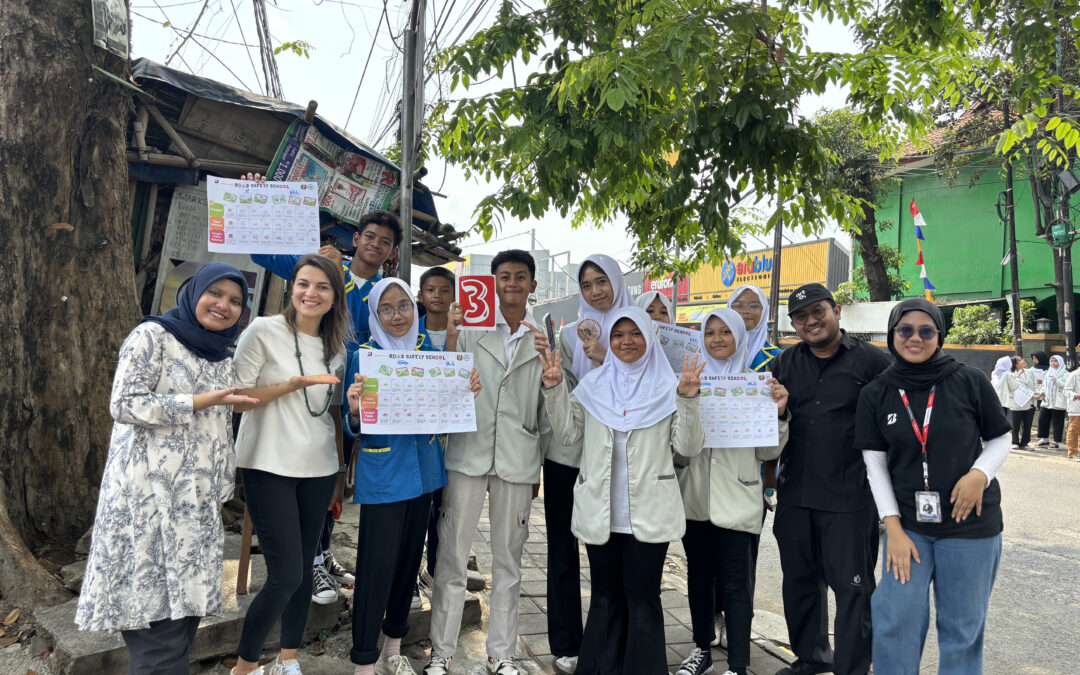Road crashes claim an estimated 1.19 million lives every year and remain the leading cause of death for children and young people aged 5–29 (WHO, 2023). Achieving the United Nations Sustainable Development Goal (SDG) Target 3.6, which calls for halving global road traffic deaths and injuries, requires stronger collaboration across sectors, including the private sector. Recognizing this global challenge, Bridgestone has stepped up its efforts through the Bridgestone Road Safety Program, a global initiative advancing safer mobility. In Indonesia, Bridgestone Indonesia launched the Road Safety School Program in Bekasi in 2024, which was its first comprehensive school-based road safety initiative in the city, combining baseline research, education, and infrastructure improvements.
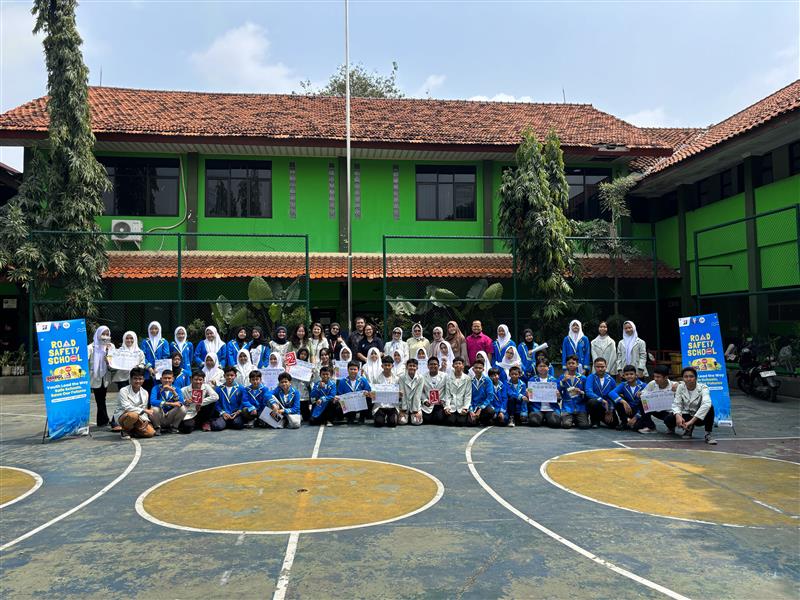
In 2025, the program built on this foundation with the workshop “Youth Lead the Way: Safe Schools, Save Our Lives” at SMPN 1 Bekasi on August 9. Following the success of last year’s program at SMPN 2 Bekasi, the workshop reinforced the vital role of youth in shaping safer journeys to school. The event brought together 50 students to strengthen their knowledge of safe behaviours and infrastructure while actively engaging them in designing solutions for their school environment. Guided by youth road safety champions Windu Mulyana, Titis Efrindu, and Estiara Ellizar, students participated in interactive activities to identify risks, propose improvements, and embrace their role as agents of change. Representatives from iRAP and the AIP Foundation also joined the session, underlining the value of collaboration and shared learning.
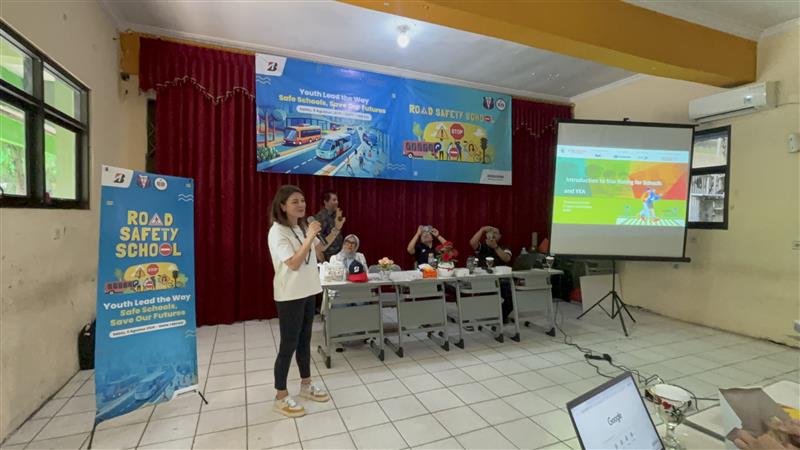
The workshop began with a pre-test to assess students’ baseline knowledge, followed by an introduction to core road safety principles. Students were then divided into five groups to explore the challenges around their school. A highlight of the session was the introduction of the Youth Engagement App (YEA), developed by iRAP. Demonstrated by iRAP Project Coordinator Shanna Luchessi, the app allows young people to document hazards and suggest improvements. Students identified issues such as unsafe pedestrian crossings, speeding vehicles, and inadequate signage, mapping them first on paper and later transferring their findings into YEA. These inputs then became the basis for group discussions, where students designed practical and achievable solutions.
At the end of the workshop, each group presented their proposals, showcasing both critical thinking and creativity. Their recommendations will feed into future infrastructure improvement plan for SMPN 1 Bekasi. A post-test revealed a significant increase in students’ understanding of safe behaviours and infrastructure, highlighting the effectiveness of participatory and hands-on learning.
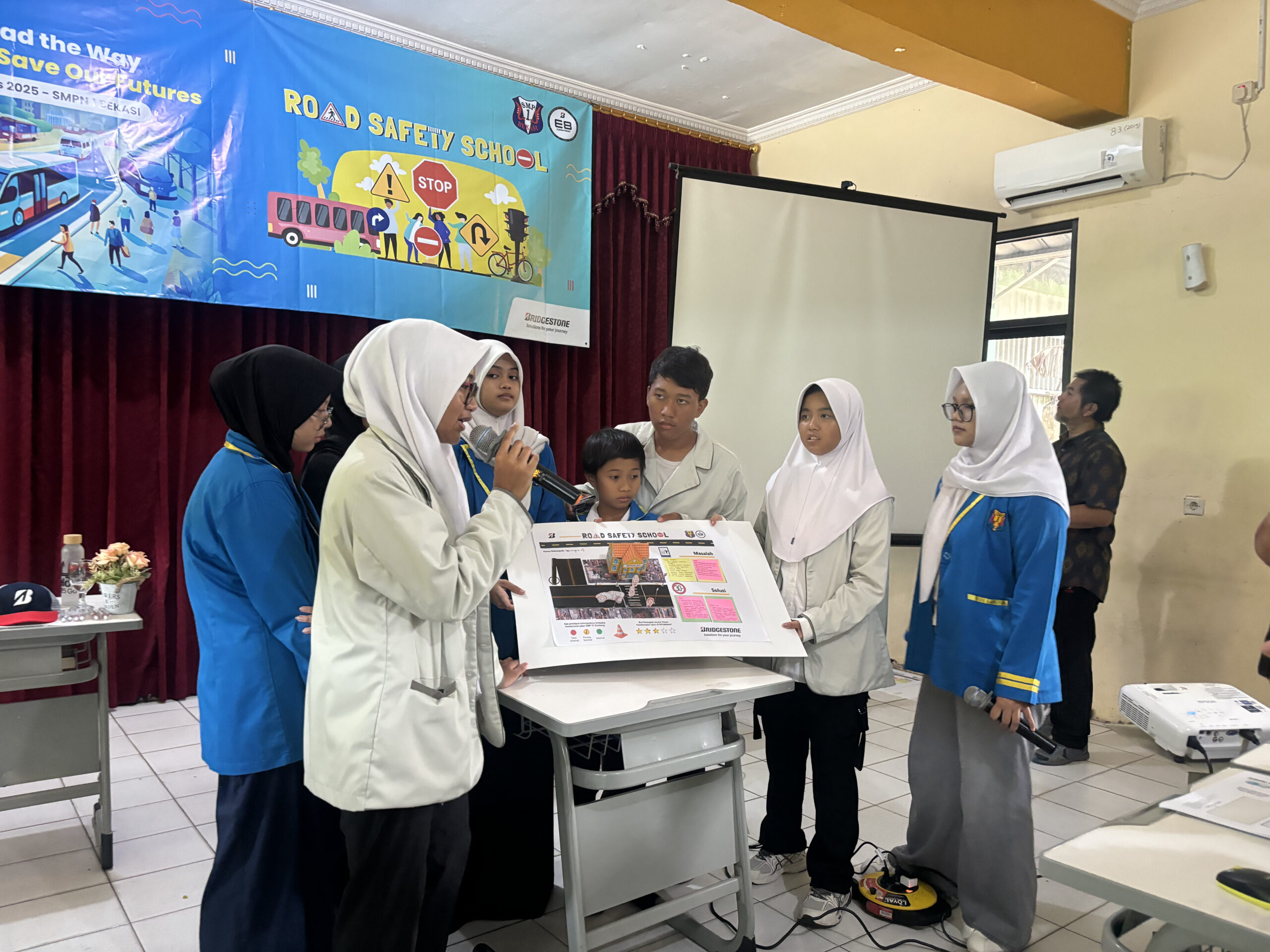
The workshop emphasized the importance of youth voices in road safety planning. By providing students with knowledge and digital tools, the program not only increased awareness but also empowered them to take an active role in shaping safer school environments. Bridgestone Indonesia’s Road Safety School Program remains dedicated to engaging students, schools, and communities in creating safer and more inclusive roads, ensuring that young people are not only protected but also equipped to lead the way.
Read more about the Bridgestone Road Safety School Program in Bekasi in 2024: Bridgestone Indonesia elevates road safety at SMPN 2 Bekasi City, West Java, Indonesia
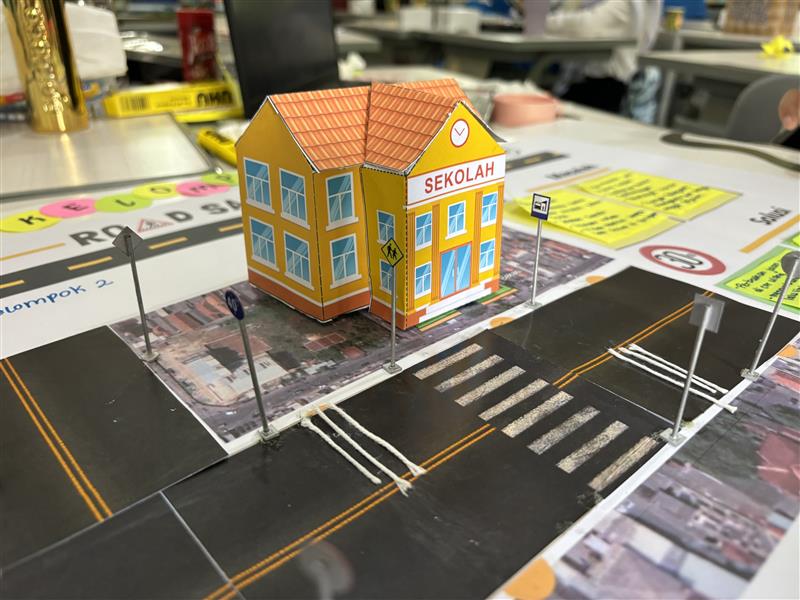
Image credits: Estiara Ellizar

